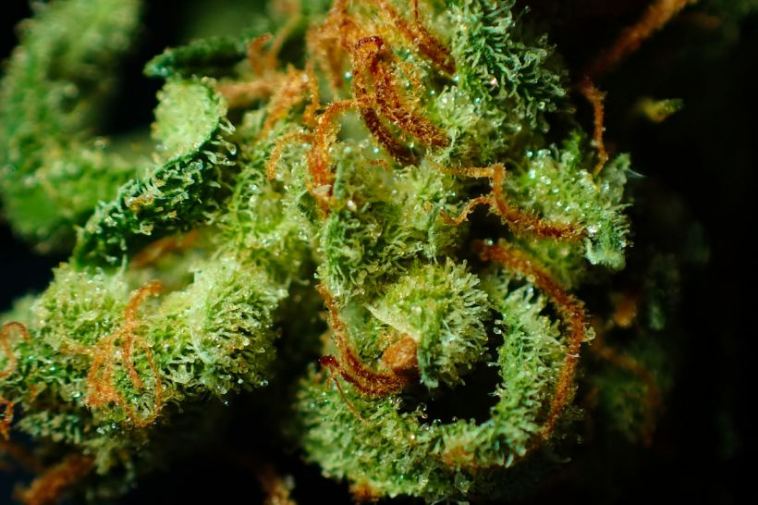- Like
- SHARE
- Digg
- Del
- Tumblr
- VKontakte
- Flattr
- Buffer
- Love This
- Save
- Odnoklassniki
- Meneame
- Blogger
- Amazon
- Yahoo Mail
- Gmail
- AOL
- Newsvine
- HackerNews
- Evernote
- MySpace
- Mail.ru
- Viadeo
- Line
- Comments
- Yummly
- SMS
- Viber
- Telegram
- JOIN
- Skype
- Facebook Messenger
- Kakao
- LiveJournal
- Yammer
- Edgar
- Fintel
- Mix
- Instapaper
- Copy Link
Introduction
According to some research, about 22.2 million people use marijuana each month.
If you want to join all of these people and use THC, you might be wondering: “What is THC?”
Thankfully, we have the perfect guide filled with all of the answers you’ll need before you start using any THC products. Keep reading to find out what you need to know!
What is THC?
THC is also known as tetrahydrocannabinol. It’s the chemical that gives marijuana the psychological effects you’ll feel when you use it. It actually acts like the cannabinoid chemicals that you have in your body.
It’ll interact with the cannabinoid receptors that you have in your brain that are associated with pleasure, coordination, perception of time, memory, and thinking. When you use THC, the chemical will attach to those receptors and activate them so that you feel all of the psychological effects.
However, there are also different kinds of THC, like Delta 8 THC. Click here to learn more!
History
Cannabis has actually been used for thousands of years. In fact, the first recorded use of cannabis was traced back to China, where they used it as medicine and food. Later when it was introduced in Europe and America, it was used for recreational purposes.
The first record of cannabis in the United States was in the 1600s. People were using hemp to grow textiles and even made money out of it. Sometimes they used it for medicinal purposes, but many people also used it recreationally, especially in the 1900s.
However, there were also anti-drug campaigns against it, and eventually, many states made it illegal. It was officially illegal in 1970, and the government made it a Schedule I drug underneath the Controlled Substances Act.
Today, THC and marijuana are not legal at a federal level. However, many states, like Colorado, have taken action to make it legal in their state for recreational use. Many states are following suit, but many more states are legalizing it solely for medicinal purposes as well.
How it Works
The endocannabinoid system (ECS) in your body is what controls the receptors that the THC will respond to. This happens in the same kind of way that neurotransmitters in your brain will change how you move and feel.
While these receptors don’t control the processes that happen in your body, it’s more of a control center that sends signals to the rest of your body.
If it works properly, it’ll try to maintain homeostasis throughout your body. When this happens, your cells and nerves can communicate effectively with your body.
Your body won’t naturally produce the cannabinoids that are in marijuana, which is why THC and cannabis can have such an impact on the way you feel or think.
Effects
When THC connects with the cannabinoid receptors in your brain, your brain releases a lot of dopamine, a hormone that makes you feel good and creates euphoria. This will interfere with how your brain processes information as well.
Sometimes, it will also cause hallucinations, change your thinking, or even cause some delusions. You can start feeling the effects about ten to thirty minutes after you ingest it, depending on how you do it. It can last for about two to three hours, and the psychomotor impairment will stop when the high wears off.
In addition to the euphoria, it can also produce effects like helping you relax, sedate you, make you hungry, cause you to be sleepy, or even relieve some of your pain.
However, if you consume too much THC, you could have issues with memory impairment, trouble forming thoughts, anxiety, and paranoia. To help counteract some of these effects, you may want to find a product that has a good balance between THC and CBD.
Uses
There are many different uses for THC, ranging from medicinally to recreationally.
Many people enjoy using it recreationally to relax or have a good time. THC can sometimes have a mellowing effect, so many people will often take it to relax.
However, more research has been done on THC, and scientists are discovering that it can help to treat or alleviate some illnesses.
For example, some people have used it to reduce symptoms of mental disorders, like depression or anxiety.
Many people also use the anti-inflammatory properties to reduce symptoms of inflammatory bowel disease, inflammation, irritable bowel syndrome, and glaucoma.
Others use it for problems with insomnia, migraines, nausea, pain, no appetite, reducing addiction, seizures, and symptoms associated with AIDS and HIV.
Recently, the FDA has also approved a synthetic THC medication. The brand names of it are Marinol and Syndros. This can help to treat any nausea or vomiting that is associated with chemotherapy. It can also help to stimulate appetite which will reduce the amount of weight loss as well.
However, before you take THC for any medical (or recreational) purpose, make sure that you speak to your doctor first.
CBD vs THC
In cannabis, you’ll be able to find THC and CBD, which are both compounds. They have the exact same molecular structure, but they will cause different effects when you use them.
CBD and THC will interact with different neurotransmitters that are in your brain. So THC will give you psychoactive effects, but CBD won’t.
CBD will cause some relaxation, but it won’t give you the same high feeling that most people associate with THC. That’s because THC binds tightly with the receptors in your brain.
CBD binds to them, but it’s very weak, and some of them never even attach. This can help you avoid the psychoactive effects of THC.
Because of that, you’re more likely to find CBD legalized in states rather than THC. In addition to that, both compounds can show up on a drug test for days or weeks after you use them.
That’s because they get stored in your body’s fat, which takes a while to go away. However, most tests don’t end up testing for CBD, so you may want to ask before you take a test for either of them.
Side Effects
While more research is needed on the full range of side effects, THC has been known to cause side effects like dizziness, drowsiness, and vomiting.
Many people also have problems balancing or remembering what happened. It might also be difficult to concentrate as well, which means that no one using THC should be driving.
You should make sure that you talk about side effects with your doctor before using THC. They can also take a look at what medications you’re currently taking and then warn you about possible reactions THC could have with your medications.
Risks
Because of the high feeling that THC brings, it makes it a very popular drug. However, some scientists are worried that there might be some risks with using it.
In some people who have had schizophrenic symptoms, THC could possibly bring on another episode.
However, one of the main concerns is that it impairs your motor skills. It’ll affect your ability to do basic tasks for about three hours after you consume it. However, even with that issue, the National Highway Traffic Safety Administration says that too many people are still driving while under the influence, posing a risk to themselves and to others on the road.
There are also risks if younger people use THC. It can affect your brain and possibly even lower your IQ, cognition, or memory. That’s because your brain is still developing and growing, but more research is needed to understand the full long-term effects that THC has.
Overdose
It is possible to overdose on THC, especially when it comes to edibles or smoking. With edibles, it can be easy to overeat and not even realize that there is THC in it.
Many people will eat an entire cookie rather than just half of the cookie, meaning they’ll get double the suggested THC dose. The doses in edibles are also usually more potent.
When you ingest it into your gastrointestinal tract, it can also hit you with greater intensity and last for longer as well.
When you inhale THC, it will only last for one to three hours. But an edible can leave you feeling the effects for six to eight hours.
Smoking is also difficult because it can be hard to measure how much you’ve smoked. If you’re new to using THC, you may want to start with another form rather than smoking so that you can measure your doses and figure out how much your body can tolerate.
Legality
Before you go out and buy some THC, you may want to check the legality of it as well. The laws have been changing often, and currently, about nine states have legalized marijuana recreationally. It is also medically legal in about twenty-nine states.
But many experts expect that it will eventually be legalized around the country. Until then, make sure that you fully understand all the rules surrounding legalization in the state that you want to use THC.
Forms
If you’re interested in using THC, there are a few different ways that you can consume it. One of the most popular ways is inhaling it.
This is the fastest way to deliver THC to your brain, so you’ll feel the psychoactive effects quickly. If you are new to using it, you’ll likely feel the effect in just a few minutes.
There are even many different ways that you can inhale THC. Most people normally vape or smoke it, but some people suggest that vaping might not be good for your health. Make sure you talk to your doctor before you start inhaling or using THC.
If you are a beginner, you may want to try taking THC by mouth first. You’ll be able to find THC in tinctures, oils, edibles, or even capsules. However, this way takes the longest to feel the effects.
But the payoff is worth it because you’ll also feel the effects longer. Because of this, if you’re a beginner, make sure that you start with a low dosage first.
Instead of taking a capsule or an edible, some people also like to use sublingual methods. This means that you can consume it in the form of a dissolvable strip, spray, or lozenge.
The effect from this might not be as strong as the other two methods, but you will still be able to feel the effects while also controlling how much you’re dosing.
Some people also prefer using the topical applications. You’ll be able to find THC in balms, salves, bath salts, and oils. You can apply these to the skin. Normally, you’ll only feel the effects in the area that you applied the lotion or oils too.
You probably won’t have any of the psychoactive effects, but this can be great for helping to reduce inflammation or getting rid of the pain.
Learn More About THC
These are only a few of the things that you need to know to answer: “What is THC?” However, there are many more things you should research before using it.
You should also make sure that you talk with your doctor about whether or not taking THC will be good for you. But we know that keeping up with all of the latest research about THC can be stressful, but we’re here to help you out.
If you enjoyed this article, make sure that you explore our website to find more articles just like this one!


